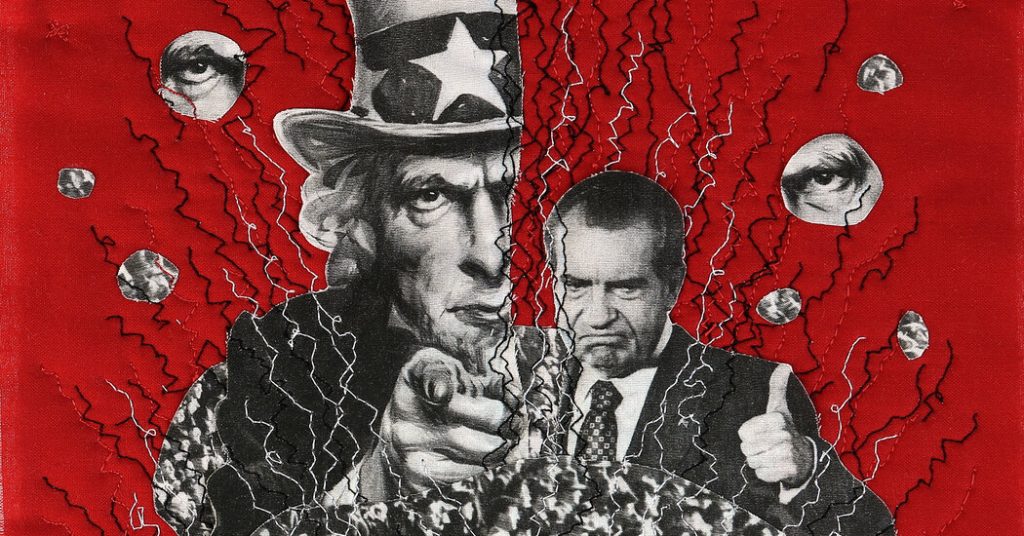What to Read
what to read
What to Read
Essay
Robert Coover’s “The Public Burning” sparked bewilderment and concern when it was published in 1977. Reality, in spite of everything, lived up to his masterpiece.
Credit…Joan Wong
Supported by
By Alexandre Nazarian
Alexander Nazaryan writes about politics, culture, and science.
It was a congressional aide, of all people, who clued me in to “The Public Burning,” Robert Coover’s magnificent novel about American politics, which is even more relevant today than when first published, to puzzlement and acclaim, in 1977. We were eating pastrami sandwiches on I Street in Washington, D.C., sometime during the hopeful early days of the Biden administration, and I asked the aide for a tip — one never just has lunch or a drink in Washington. Instead of conveying the latest piece of Capitol Hill gossip, as is the norm, he directed me to Coover’s classic.
It remains the best tip I’ve ever gotten, a scoop I am pleased to share with you now. Coover died in October, just as reality finally caught up to his masterpiece, an “extraordinary act of moral passion,” as a reviewer for The New York Times wrote at the time, a “destructive device that will not easily be defused.” Starring Richard Nixon, “The Public Burning” mocks our politics and our culture by wallowing in both. References to 1950s ephemera score writing so alive that the sentences seem almost to vibrate, like particles let loose by a madman. “It is a glorious, slam-bang, star-spangled fiction,” the novelist William H. Gass wrote in an introduction to a 1998 edition, “and every awful word of it is true.”
Well, that’s right. The name of the novel refers to the execution of Ethel and Julius Rosenberg, for supposedly passing atomic secrets to the Soviets, in 1953: “thieves of light who will be burned by the light”, as Coover describes their tricks in the electric chair. Sing Sing. In “The Book of Daniel”, published six years earlier, E. L. Doctorow had described their deaths as a family tragedy; Here it is a national farce staged in the middle of Times Square.
A sign shines above the level where the Rosenbergs are going to fry: “AMERICA, THE HOPE OF THE WORLD. ” Only the words “metamorphose letter after letter before the eyes of astonished passersby” until a less cheerful message materializes: “AMERICA, THE JOKE OF THE WORLD. ” Oh!
Coover’s mind is chronically wild, but the premise of “The Public Burning” is strangely simple. Nixon, then Dwight D. Eisenhower’s vice president, will conclude his business in Washington before traveling to New York to attend Rosenberg’s show. As for the plot, that’s it.
The novel opens with the most banal ritual in Washington: a press conference. Three days earlier, Eisenhower had warned Dartmouth graduates to “join the e-book burners,” referring to Sen. Joseph McCarthy of Wisconsin and his attorney Roy Cohn, who helped file the lawsuit against the Rosenbergs. Today, Eisenhower defends those comments to the Washington press, as he did in real life. Meanwhile, on the Supreme Court, Justice William O. Douglas (to whom Coover dedicates the novel) is willing to grant a stay of execution in the Rosenberg case.
We are having retrieving the content of the article.
Allow JavaScript in your browser settings.
Thank you for your patience while we determine access. If you’re in gamer mode, exit and log into your Times account or subscribe to the full Times.
Thank you for your patience as we determine access.
Already subscribed? Access.
Do you want all the Times? Subscribe.
Advertisement

